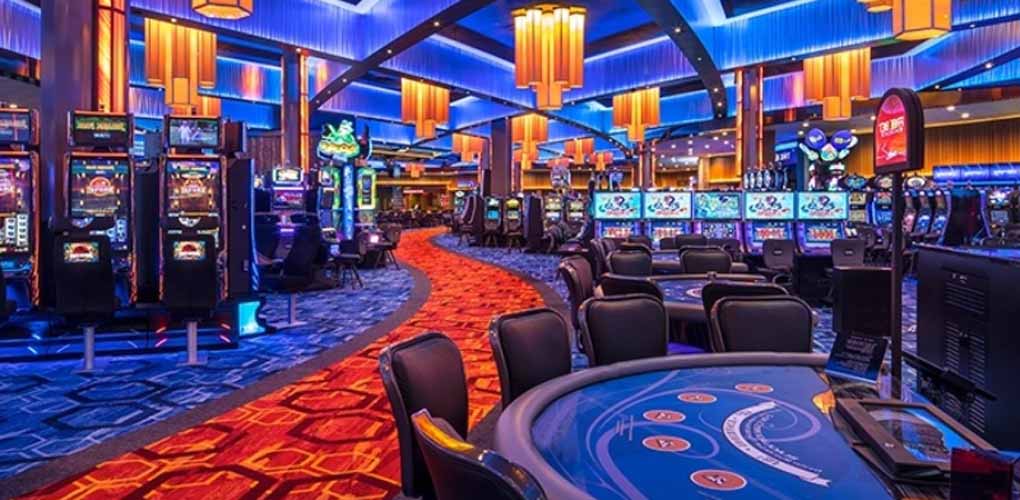
The attraction of gambling games has mesmerized countless individuals around the planet for ages. From the spinning roulette wheel to the melody of shuffling deck of cards, the rush of chance and expertise blends to create an exciting environment that attracts people in. These games are not just pastimes; they have become an essential part of the entertainment industry, growing into a universal trend that covers luxurious getaways, vibrant internet casinos, and all that lies in between.
As the desire for unique and immersive experiences persists to expand, the stories behind the triumph of gaming experiences reveal a fascinating environment. Innovators and creators are always pushing the boundaries of innovative thinking and originality, resulting in the development of novel gaming options and interactive tech. Delving into these narratives gives us a glimpse into what it takes to create a casino game enterprise and the passion that motivates those operating behind the scenes.
The Evolution of Gambling Games
Gambling games have a rich history that dates back hundreds of years, with their beginnings often connected with historic ceremonies and social gatherings. The earliest forms of gambling can be traced back to long-ago Chinese civilization, where dice games were played, and even to the Romans who enjoyed betting on various occurrences. Over time, these rudimentary games evolved into more organized forms, culminating in the establishment of games like baccarat and roulette in the 17th century. These initial gambling games laid the groundwork for the field we witness today.
As the world advanced, so did the sophistication and variety of gambling options. The 19th century marked a noteworthy milestone with the creation of formal casinos in places like Monte Carlo and Las Vegas. This era saw the emergence of famous games such as poker and blackjack, which fascinated the imaginations of participants around the world. The growth of these games was fueled by advancements in game design and the creation of betting regulations that made the industry more organized and appealing to the general populace.
The digital transformation in the late 20th and early 21st centuries altered the landscape of casino games yet again. The emergence of the internet brought about virtual casinos, enabling players to play their favorite games from the convenience of their houses. This shift not only broadened the scope of casino games but also opened up new types like live dealer games and mobile gaming apps. Today, the gambling game empire continues to develop, with innovative technologies such as virtual reality and blockchain potentially set to reshape the coming years of betting.
Successful Casino Game Development Strategies
The foundation of a successful casino game empire lies in the creation of entertaining and innovative games that enthrall players. A winning strategy requires thorough market research to comprehend existing trends and player preferences. By analyzing user feedback and observing high-performing titles, developers can identify what appeals with players and what features are in request. Including unique themes, multifaceted game mechanics, and aesthetically appealing graphics are vital to differentiate in a cutthroat landscape.
Collaboration is yet another key element of successful game development. Bringing together talented designers, programmers, and mathematicians ensures that games are both visually impressive but also balanced in terms of gameplay. Encouraging honest communication among team members nurtures creativity and results in cutting-edge concepts. Moreover, connecting with players during the beta testing phase allows developers to gather precious insights that can fine-tune gameplay elements before the official launch. FB88
Lastly, efficient marketing strategies cannot be overlooked in establishing a successful casino game empire. Creating a captivating narrative around the game and utilizing digital media platforms to create buzz can greatly impact player acquisition. Offering deals, loyalty rewards, and participating in community events can further enhance player retention. By blending strong development practices with smart marketing, game developers can create an immersive experience that keeps players revisiting for more.
The Future of Gambling Play
The landscape of gambling gaming is evolving quickly, driven by progress in tech and changing player tastes. Digital and mobile gaming is prepared to dominate the industry as more gamblers seek convenience and availability. Virtual reality and virtual reality are also integrating into the gambling experience, providing immersive settings that elevate classic gameplay to a new level. As gamblers crave more interactive and engaging interactions, casinos will need to change and evolve to keep their audience captivated.
Additionally, the incorporation of AI tech and information analysis will play a major role in defining the prospects of gambling gaming. https://g0.in.net/ Casinos will utilize information to analyze player behavior, tailor experiences, and improve customer service. Personalization will become essential, as players will want plays that adjust to their preferences and play styles. As the gambling industry makes use of these insights, the creation of new game types and elements will likely emerge, keeping the gambling experience fresh and thrilling for everyone.
Moreover, the movement towards safe play is becoming increasingly important. As regulators and players focus more on player welfare, casinos will need to implement measures that encourage responsible gaming practices. This could include features that allow gamblers to set limits on their expenses and time spent playing, as well as better resources for those who may be struggling with gambling addiction. By prioritizing responsible gaming, casinos can build trust with their customers and ensure a viable future in the challenging landscape of casino gaming.